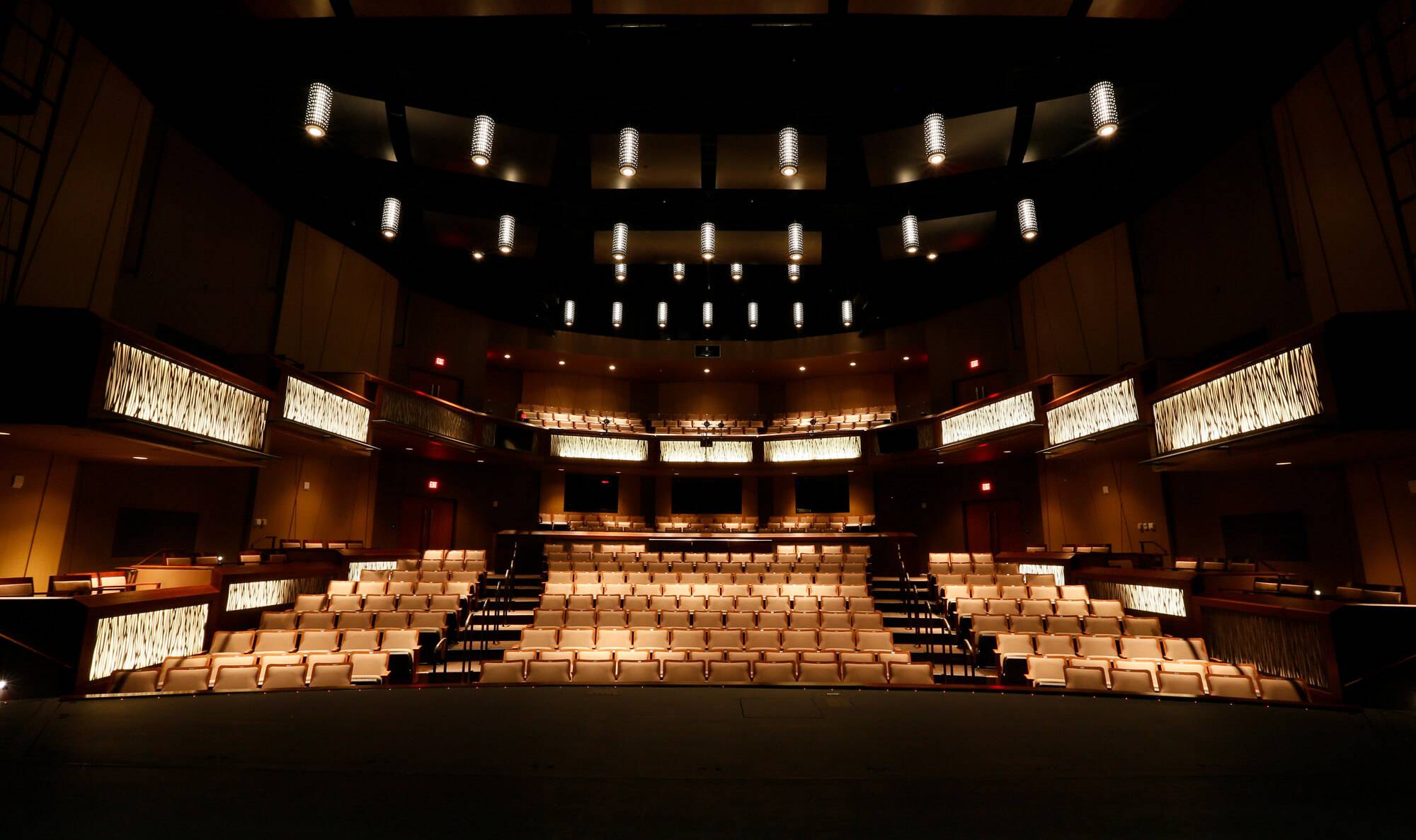THE CURRICULUM
Text Analysis, Research, and Interpretation
This exploration of dramatic text includes inductive, deductive, structural, and methodical approaches. It also examines techniques for production research and explores issues of interpretation that affect the development of a play’s translation into a production on stage.
Collaborative Theory
This course examines the nature of collaboration within the context of the live entertainment production process.
Fundamentals of Environment
This practical exploration of processes and techniques for developing scenic and lighting designs focuses on developing a common vernacular and emphasizing problem-solving skills. In-class studio sessions foster analysis, research and presentation skills, and graphic skill development.
Fundamentals of Character
This practical exploration of the process and techniques for character development from the perspectives of the director and costume designer focuses on developing common vernacular and emphasizing problem-solving skills. In-class studio sessions foster analysis, research and presentation skills, and graphic skill development.
History of Material Culture Pre-20th Century
This historical survey of material culture and its influence on theatrical production before the twentieth century focuses on research of the architecture, interiors, fashion, and social culture of seminal periods and how we activate this research in design and storytelling.
History of Material Culture in the 20th & 21st Century
This historical survey of material culture and its influence on theatrical production in the twentieth and twenty-first centuries focuses on research of the architecture, interiors, fashion, and social culture in recent history and how we activate this research in design and storytelling. Attention will be placed on the influences that shape seminal practitioners of theatrical production.
Brand Management & Development
This course focuses on creating a unique brand and marketing toolkit for practitioners in the live entertainment industry. Basic principles of business practices, including accounting, tax law, networking, and unions, are also explored.
Devising Theatre
This interdisciplinary laboratory focuses on the creation of original work that incorporates a strong visual component. Individual artistic development will be addressed along with the challenges of devising theatrical work through non-traditional methods.
Graphic Representation
This course is a media studio where students study and practice drawing, painting, and rendering techniques using watercolors, gouache, and other media, including markers.
Digital Rendering
This course is a media studio where students study and practice drawing, painting, and rendering techniques using digital media such as Photoshop and Procreate.
Non-Theatrical Design
In this course, students will learn the concepts, philosophy, and tools necessary to design theme parks, museums, exhibitions, concerts, restaurants, retail spaces, and more for an industry expanding worldwide.
The remaining credits for the degree are comprised of each area of specialization from the following possibilities and tailored to their goals.
Historical Costume Research, Vectorworks, Vectorworks II, Advanced Costume Production (various topics), Figure Drawing for Theatre Design, Scenic Painting, Stage Properties, Automated Lighting, Projection Design, Film Production Design, Professional Internship, Design Studio
